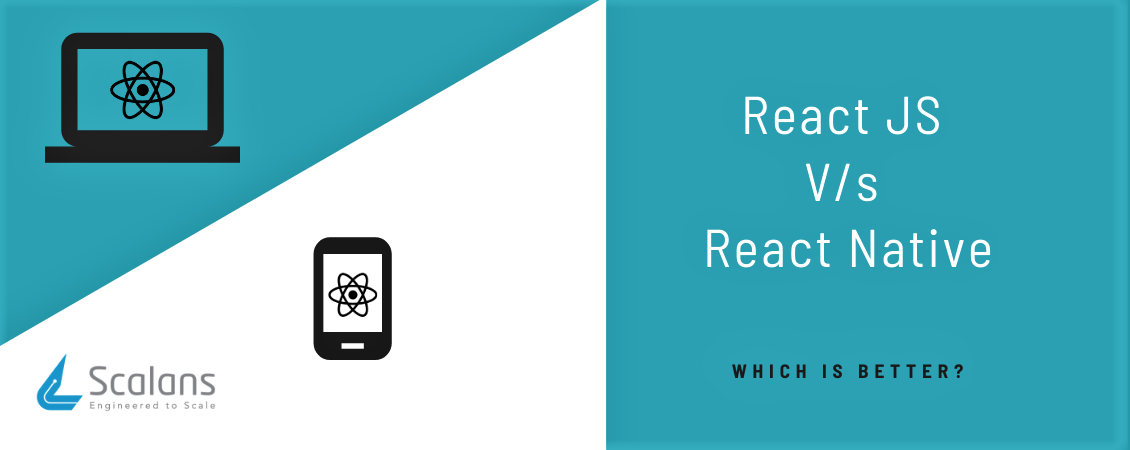
React.JS vs React Native: An Overview
Both React.js and React Native – open sourced by Facebook, are used by software developers for building robust products; but what are their basic structural and functional differences?
Well, let’s find out.
React.JS
React.js or React is a JavaScript library used for building dynamic user interfaces styled on CSS. In short, it helps to create reusable UI components and it supports both the front-end and the back-end
operations.
The main highlight of React is its Virtual DOM (Document Object Model) where the components of the React code are rendered to the DOM through the ReactDOM library.
React Native
React Native is a JavaScript-based mobile application framework used to develop native mobile apps across different platforms. It utilizes the native UI components from React to give cross platform apps a truly native feel.
There is no virtual DOM for React Native; it uses native APIs for rendering components to mobile platforms. It doesn’t use CSS for styling; instead it builds JavaScript-based stylesheets.
Benefits of React.JS
- As React’s Virtual DOM is just a representation of the Real DOM, it is lightweight and fast hence, it exhibits superior performance and is easy to handle for programmers.
- React.js has a smooth learning curve; the codes can be easily grasped even by those who are unfamiliar with it.
- With generic reusable components, developers don’t have to waste time writing codes again and again.
- React has unidirectional data flow making it easier to debug and less prone to errors,thereby saving developer’s time.
Benefits of React Native
- As a single piece of code can be reused across platforms – be it iOS, Android or Windows, React Native helps speed up app development and reduces costs.
- It offers a highly responsive UI, similar to that of native apps, built using JavaScript and React, that ensures faster loading time.
- Prior knowledge of JavaScript helps a front-end web developer to learn React Native and become a mobile developer.
- React Native allows integration of third-party plugins to access device functionalities without excess memory usage.
Conclusion
In a nutshell, React.js is most suitable for creating highly performing web interfaces; while, React Native is the best framework for developing cross-platform mobile apps that offer a native user experience.



